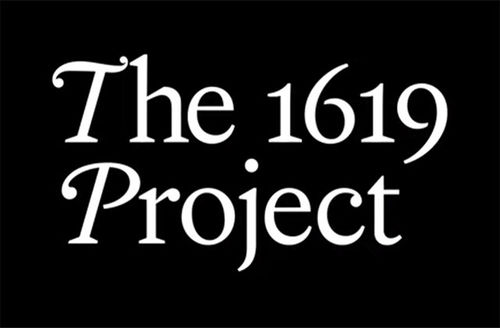Deception & Misdirection
Pulitzer-Winning 1619 Project Couldn’t Even Get Its Own Name Correct


On Monday, May 4, the lead essay from the New York Times Magazine’s 1619 Project won the Pulitzer Prize for commentary. The 1619 Project has been controversial since its introduction in August 2019, with more than a dozen prominent historians and political science professors, some with Pulitzer Prizes of their own, raising concerns about serious factual inaccuracies in the project’s essays. Recalling these concerns on Monday, the New York Post editorial board quipped that the 1619 Project certainly deserved a Pulitzer, but it should have been for the fiction category, not commentary.
Prone to Err
Remarkably, the project errors include even its name, which is the subject of the Pulitzer-winning lead essay written by 1619 Project director Nikole Hannah-Jones:
In August 1619, just 12 years after the English settled Jamestown, Va., one year before the Puritans landed at Plymouth Rock and some 157 years before the English colonists even decided they wanted to form their own country, the Jamestown colonists bought 20 to 30 enslaved Africans from English pirates.
Thus, was the “1619 Project” name selected, and this is why the essay series was published in August 2019, the presumed 400th anniversary of the “beginning of American slavery.”
Correcting the Record
This assertion was invalidated as soon as it was released by Nell Irvin Painter, a professor emerita of American history at Princeton University. In an August essay for The Guardian, a left-leaning British newspaper, Painter wrote:
People were not enslaved in Virginia in 1619, they were indentured. The 20 or so Africans were sold and bought as “servants” for a term of years, and they joined a population consisting largely of European indentured servants, mainly poor people from the British Isles whom the Virginia Company of London had transported and sold into servitude.
Furthermore, according to Painter, for many years thereafter Africans were not even the majority of Virginia servants:
Even in 1700, Africans were hardly the only unfree colonists, for a majority of those laboring in Virginia were people bound to service. They were indentured whites.
Painter does not appear to have written the Guardian essay to criticize the 1619 Project, but rather to critique a July 2019 speech by President Donald Trump on a visit to Jamestown to commemorate the 1619 birth of representative government in Virginia. Painter’s objective was to demonstrate that mischaracterizing the Africans of 1619 as slaves—an error she says the president repeated in his address—skews the historical perception of their contribution. Painter wrote that Trump dedicated 688 words to the hard work done by European (white) settlers, but just 67 to the supposed African slaves, failing to mention their hard work. No fan of the president, Painter (an African American) had just weeks earlier accused him of racism in another Guardian essay.
Ironically, Painter’s essay debunking 1619 as the founding year of slavery appeared on August 14, 2019, the same day that Hannah-Jones’s Pulitzer-winner was posted by the New York Times. Important chunks of what Painter wrote that day to criticize Trump also severely damaged Hannah-Jones’s point about racist slaveholding being baked into the original DNA of the colonies:
Enslavement was a process that took place step by step, after the mid-17th century. This process of turning “servants” from Africa into racialized workers enslaved for life occurred in the 1660s to 1680s through a succession of Virginia laws that decreed that a child’s status followed that of its mother and that baptism did not automatically confer emancipation. By the end of the seventeenth century, Africans had indeed been marked off by race in law as chattel to be bought, sold, traded, inherited and serve as collateral for business and debt services. This was not already the case in 1619.
False When Written
The title of Hannah-Jones’s lead essay for the 1619 Project begins with the words “Our democracy’s founding ideals were false when they were written.” Ironically, this charge sticks more fully when applied to the very name of the project she directed—and much of what it claims.
Additional concerns about the 1619 Project raised by many other historians, and the reaction from the New York Times, are covered in the comprehensive InfluenceWatch.org entries for the 1619 Project and Nikole Hannah-Jones.



